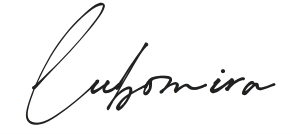I go to a box, tucked away in my closet. I open the box. Inside it, a hundred handwritten letters. Letters I’ve received, letters I’ve written, emotions and thoughts and inner worlds expressed through the beauty and richness of words – emotions and memories stamped in time.
Once upon a time, before the internet and the emails and texts and emoticons, we grew up with handwriting. We gave and received communication that had been carefully and mindfully considered and crafted; and each word chosen, in order to express to our recipient what we truly wanted to say and express – there were worlds within the words, inspiring other worlds within us through which we could experience ourselves, and another, and perhaps even build a bridge.
In the way the writing flows, we see so much about the other person. Handwriting, particularly cursive, is more fluid, more connected – it essentially connects us to ourselves, because hand meets pen, and in the twists and curvature, our body, mind and emotions are all connected. I imagine that graphology is an art that may go out of our world, because people rarely handwrite anymore. Handwriting is purposeful, as it aligns us to our individual flow; and the individual flow is slowly beginning to be removed from the collective stream.
In the way we communicate through our phones, with texts and emojis, things have become a bit too fractured and fragmented; thoughts and emotions are fractured and fragmented. Emoticons are symbols through which it seems many people have been now accustomed to express themselves; but these are merely symbols, they only indicate rather than truly express, and they are basically simple homogenized ways in which a person may express themselves.
The concern, and perhaps the caution, is that homogenization of language has taken away from our ability to use language in an expressive way; and it has taken away our ability to understand the essence of things. Emoticons are symbolic, and they are fun and sparkling, but they merely only indicate – they don’t express; or when they express, it is in a very simple homogenized way. It’s a dumbing down. It is dumbing down our capacity and ability to express our uniqueness with others, and to develop ourselves, both mentally and emotionally, in meaningful ways. We forget the essence of things, we forget to see what the worlds within the words, we forget the nuances and richness; we forget that literalization has no place in our emotional and spiritual wildlands, because it takes away from us, it puts us in boxes, it limits our thinking and feeling, and we stay constrained in a little box with cute colours.
When the essence of things is lost, we lose so much meaning and opportunities for a deepening; we lose so much from our inner worlds also. Often times in our modern world we mimic words from movies, songs, social media; and a lot of the phrases and words we then use are only repeats of what we’ve already been fed – rather than truly expressing ourselves more authentically. And in a very subtle way, it eventually limits our ability to communicate more effectively with one another. It’s something to acknowledge, and it’s something to resist.
I sometimes meet people who has a lot of beautiful words and phrases, but if you listen long enough, or carefully enough, you’d find emptiness behind the words. You hear them, you listen to what they are saying, but then you notice how it either makes no sense because there is no logical thread, or you merely notice how their actions do not align at all to what they’ve just been saying. And you wonder if they even understand what they’ve just said at all; or they are just repeating memes from social media, gaining “knowledge” from philosophy quotes which they just repeat but don’t understand the essence of the wisdom, or just filling in blanks with trending words and phrases to seem intelligent or “popular”.
I was recently speaking to a woman who is a content creator, and she decided to quit Instagram, because she realized it was dumbing her down. She experienced almost like a full blown addiction withdrawal symptoms, and to fill her space and soothe herself, she decided to begin reading a book; and she chose Jane Eyre by Charlotte Bronte. She shared how interesting it was, and how she “even understood most of what I was reading, though I still had to sit and think about some sentences, and research the meaning of the phrases and words used”. She is a native English speaker, and she is in her 30s.
And I thought about how that’s perhaps natural to feel, because in an age where “gorg” means “gorgeous”, where each fifth word is “like”, and people might even speak “lol” instead of actually laughing, we have forgotten to read full sentences and use our intellect.
Most recently, I learned “sus” which for those of you who don’t know, it means “suspicious”, or in other words, the inability to spend an additional second of more energy to pronounce two more syllables, or the inability to spell. So I was a witness to a conversation of “sus this and sus that”, and amidst the sussing I remained with a perpetual question mark on my face. The perpetuity of it wasn’t due to years trying to understand what sus meant, but it was due to me then trying to find threads of logic where apparently there were none. Because it was completely out of context, and there was nothing sus about anything. And then, the perpetuity of my question mark became a wondering of, “Do they know what sus means?” Fortunately for me, I’ve been blessed with a sense of humour, and a mysterious ability to decipher the bizarre.
In high school, when I studied Shakespeare, it was certainly no easy task. It was hard to read, hard to understand, and full of words and metaphors that would really challenge our minds. But that was purposeful, and beautiful. Metaphors serve to enrich us and deepen us in seeing something beyond the immediacy of words. And it is good to read things and languages that are harder to understand, because this trains our mind to expand and our intellect to develop, and like a muscle, to train it. It also develops our ability to interpret, and to deepen in our understanding.
Attention spans have been significantly reduced, and we are only looking to read five minute articles, and preferably, they should include “points and steps” so that we absorb it easier. But this simplification has affected human relationships also; because in modern relationships, people have began to have short attention spans also. It is harder to make the effort to get to know someone, to explore and understand their inner worlds, and to accept the complexity and nuances of human nature.
Absolutism sinks us in the water like stones. And why put in the effort anyway, when we can just swipe or scroll next, and distract else with something else that’s sparkling and catching us with a click bait phrase. It’s like human have actually become click baits themselves – only focusing on the surface of things to hold some attention for as long as possible. And in a world that is increasingly dehumanized, swiping human faces on screens, where even art and culture no longer attempt to inspire us, I believe we need to get back to the essence of things – and to connect our body, mind, heart and spirit together again. Handwriting is a great way to begin and practice – as it will help you with nurturing a more meaningful and unique way of self expression, and help you in your ability to effectively communicate with others also.
When we handwrite, we engage our hands, we engage our thoughts and emotions, and through the curvature of each word, we are more mindful and connected. Each word is chosen more mindfully, and we are essentially in our individual flow, in our creative and authentic self expression, and we are connecting our thoughts and emotions through our words. To be able to communicate is one of our greatest skills in this life; and we should also understand the power of words, and understand to see the essence of them.
Have you ever handwritten a letter to someone? How was that experience for you? Did your emotions and love flow more easily and sincerely?
Have you ever held a handwritten love letter in your hands? Have you seen one? Have you noticed how emotions are stamped in time, and how we enter worlds, open doorways into worlds where no time and space separate us?
I once looked through the love letters of F. Scott Fitzgerald, and in one of them I could see a little drop of a tear that had smudged the ink. And in that moment, it’s as if I touched a space within his world, an emotion, an timeless experience that pulled my own heart strings also.
I’ve myself received beautiful love letters and poems, and each one I’ve treasured, for I deeply treasure and respect the vulnerability and strength a man needs to have when they express their love and emotions so sincerely. There is often little to no expectation at all with love letters, because one writes them because they just want to express their love – rather than expect you to dot dot dot reply immediately in a text message. Love is not something we should expect to be reciprocated, it is something to express because it is not limited to conditions. That’s the beauty of it: to love you because I love you, not because of how you’ll respond to me. It’s a simple perfection to just love someone; to be truthful with yourself because of how you truly feel rather than your feelings dependent on theirs, and to be able to say “I love you” without expecting something in turn.
The art of poetry and beautiful speech were important parts of ancient art and practices; and through handwriting our energy flows more naturally. Poetry is the fine art of writing, and while modern poetry may not always offer us the richness and beauty of language and metaphor, because I suppose it is adjusted to the audience reading it and their ability to absorb it – I would encourage you to read poetry that challenges you, read the Shakespearean sonnets, do not be afraid if you cannot immediate understand the metaphors – allow them to open within you doorways, as it could be a meaningful and expansionary experience that would unfold within you.
Learning how to speak mindfully is an important human skill. Words are mini Gods, they are prayers, and they weave like a necklace adorning us. It might take us some more effort to learn to communicate properly, to enrich our vocabulary, and to understand metaphors – but these all will help you in your relationships. Writing is a way to shape emotions, and to express the worlds within us through out hands, and then our lips, and then, our very actions in our every day.
The art of communication is then our ability to hold a conversation on many topics, and to be able to interpret others’ expressions of self through their unique ways of communicating – different topics, different perspectives, different educational levels, different cultures and traditions. We learn to not get triggered by a simple word, but with our now expanded inner self and ability to think, to seek its essence and the intention of what the other person means.
And of course, we learn about our own selves also; we see more clearly what are our own perspectives and states of being when we allow that pen to form and shape what lies within us. And through self knowledge, we are then more able to discern and understand others also; and to expand in our ability to understand that which we may not be accustomed to – that which may not look or seem like what we thought it should.

For more of my writings, browse through my Art of Love.
If you value what I do, you can support me and my publication by sharing my articles and poems, buy my poetry books or donate some magic coins in my hat on Paypal. If you would like to work with me, visit my Offerings.
Your support means so much to me! Thank you wholeheartedly!





